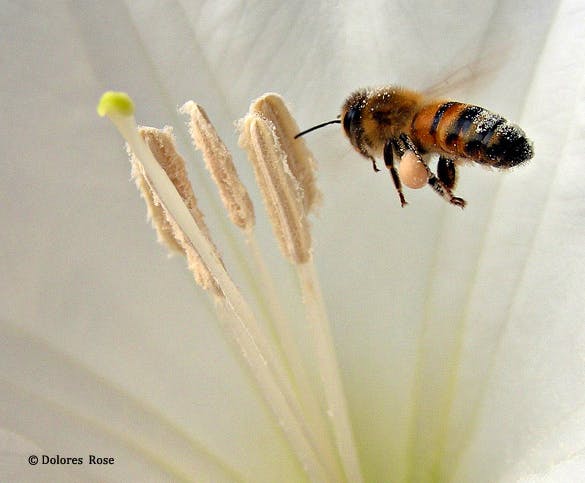Defenders recently went to court to protect honey bees and native pollinators from the harmful effects of a widely-used class of insecticides called “neonicotinoids” (nēō-nǐkětǐnōǐds) that many scientists believe are partly responsible for the stunning collapse in these species’ populations.
Bees and other pollinators play an essential role in the environment and are an indispensable part of our agricultural system. As we told the court: Many foods that we eat depend on a crop pollinated by honey bees. Ninety percent of all flowering plants require pollinators to reproduce. But in recent years, bees and other pollinators have been disappearing, causing widespread concern that these important species could be wiped out altogether.

A bumble bee pollinates a purple cone flower in Indiana.
Not long ago, the Environmental Protection Agency (EPA) registered a new insecticide called sulfoxaflor (sǔl-fǒks-a-flor) under the Federal Insecticide, Fungicide, and Rodenticide Act (FIFRA). The case we’re involved in, Pollinator Stewardship Council v. EPA (9th Circuit), challenges that decision, which makes the insecticide permissible for widespread use. The EPA approved sulfoxaflor for use even though the agency’s own scientists considered the product to be “very highly toxic” to honey bees. The Pollinator Stewardship Council (a group of beekeepers), with the assistance of Earthjustice, are asking the U.S. Court of Appeals of the Ninth Circuit to set aside the EPA’s decision to register sulfoxaflor so that this substance does not get out into the environment and impact honeybees.
Joining with attorneys from the Center for Food Safety and other groups, we filed an amicus or “friend of the court” brief in the case to highlight both the importance of pollinators and the critical need to adequately study the harmful effects of pesticides before approving them for use. Since neonicotinoids first became widely used in the mid-2000s, roughly one-third of America’s honey bee colonies have collapsed each year. Allowing another of these insecticides, like sulfoxaflor, to be used on millions of acres of farms and orchards will only make the situation worse.
The amicus brief brings environmental, food, and health groups together in support of overturning the registration. Defenders has recognized bees as a key species, and substantial evidence suggests that neonicotinides and next-generation pesticides like sulfoxaflor are playing a major role in the decline of these critical species. We will keep you posted as the case unfolds.
Jason Rylander, Senior Staff Attorney



